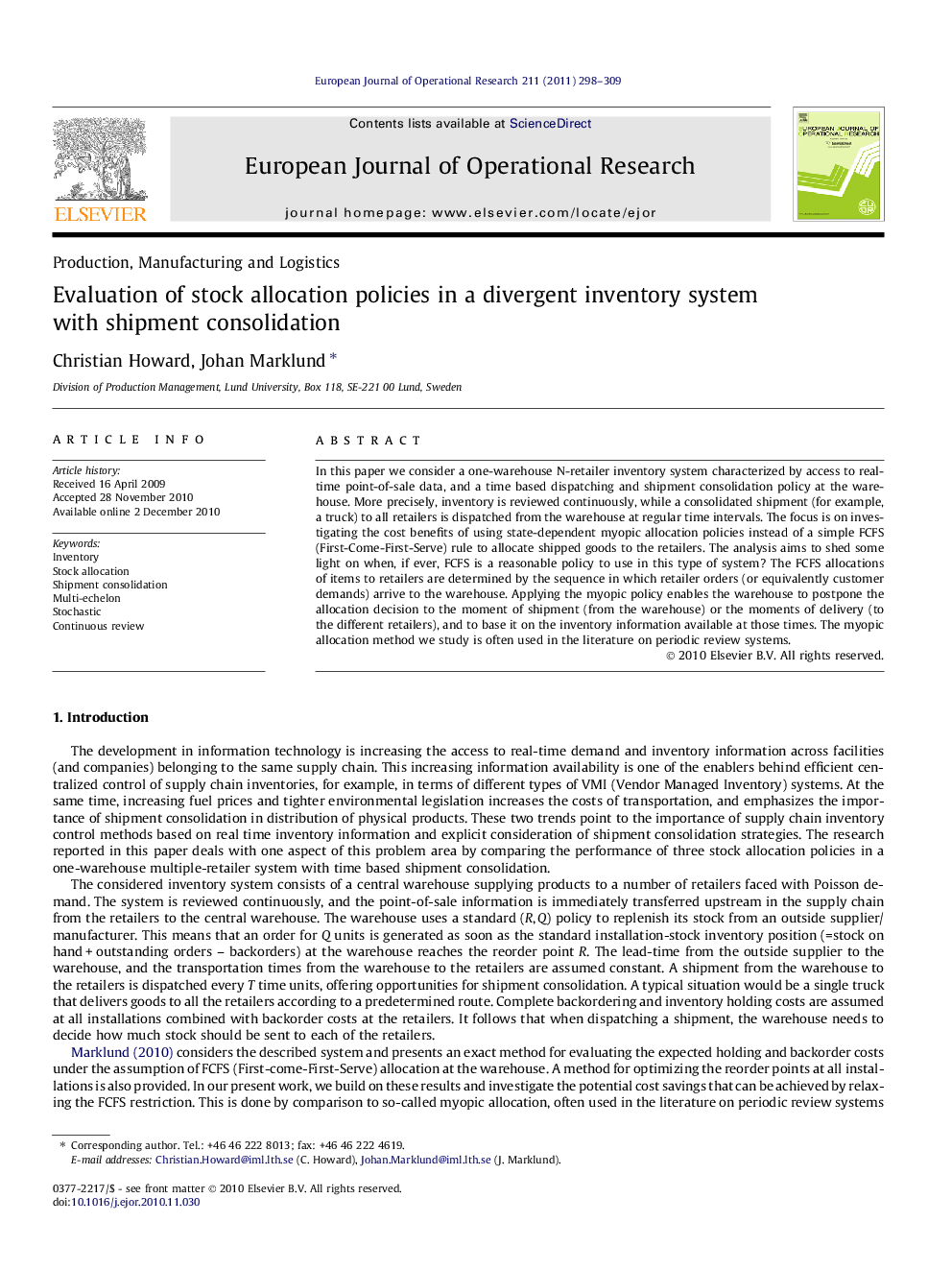| Article ID | Journal | Published Year | Pages | File Type |
|---|---|---|---|---|
| 478511 | European Journal of Operational Research | 2011 | 12 Pages |
In this paper we consider a one-warehouse N-retailer inventory system characterized by access to real-time point-of-sale data, and a time based dispatching and shipment consolidation policy at the warehouse. More precisely, inventory is reviewed continuously, while a consolidated shipment (for example, a truck) to all retailers is dispatched from the warehouse at regular time intervals. The focus is on investigating the cost benefits of using state-dependent myopic allocation policies instead of a simple FCFS (First-Come-First-Serve) rule to allocate shipped goods to the retailers. The analysis aims to shed some light on when, if ever, FCFS is a reasonable policy to use in this type of system? The FCFS allocations of items to retailers are determined by the sequence in which retailer orders (or equivalently customer demands) arrive to the warehouse. Applying the myopic policy enables the warehouse to postpone the allocation decision to the moment of shipment (from the warehouse) or the moments of delivery (to the different retailers), and to base it on the inventory information available at those times. The myopic allocation method we study is often used in the literature on periodic review systems.
